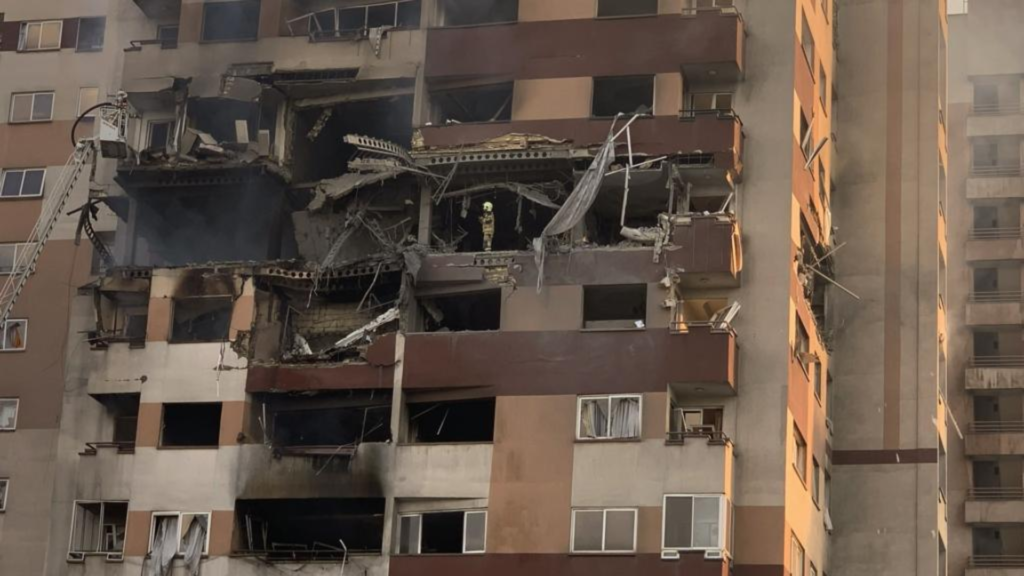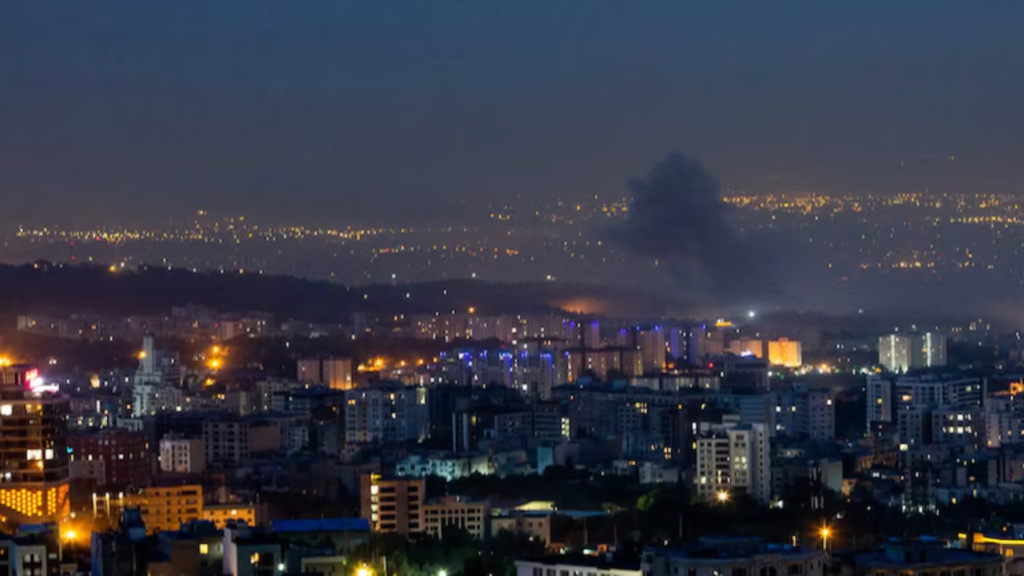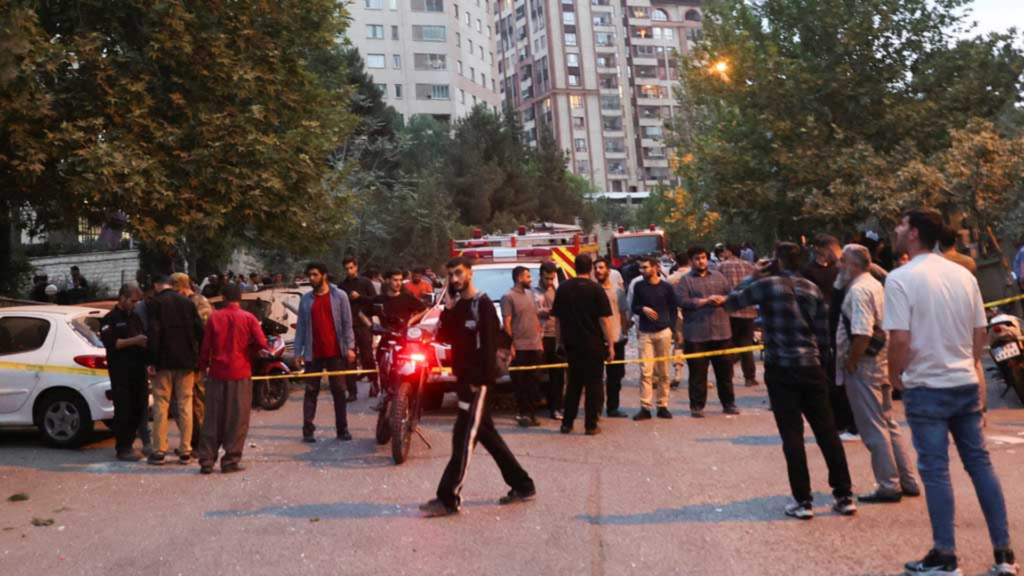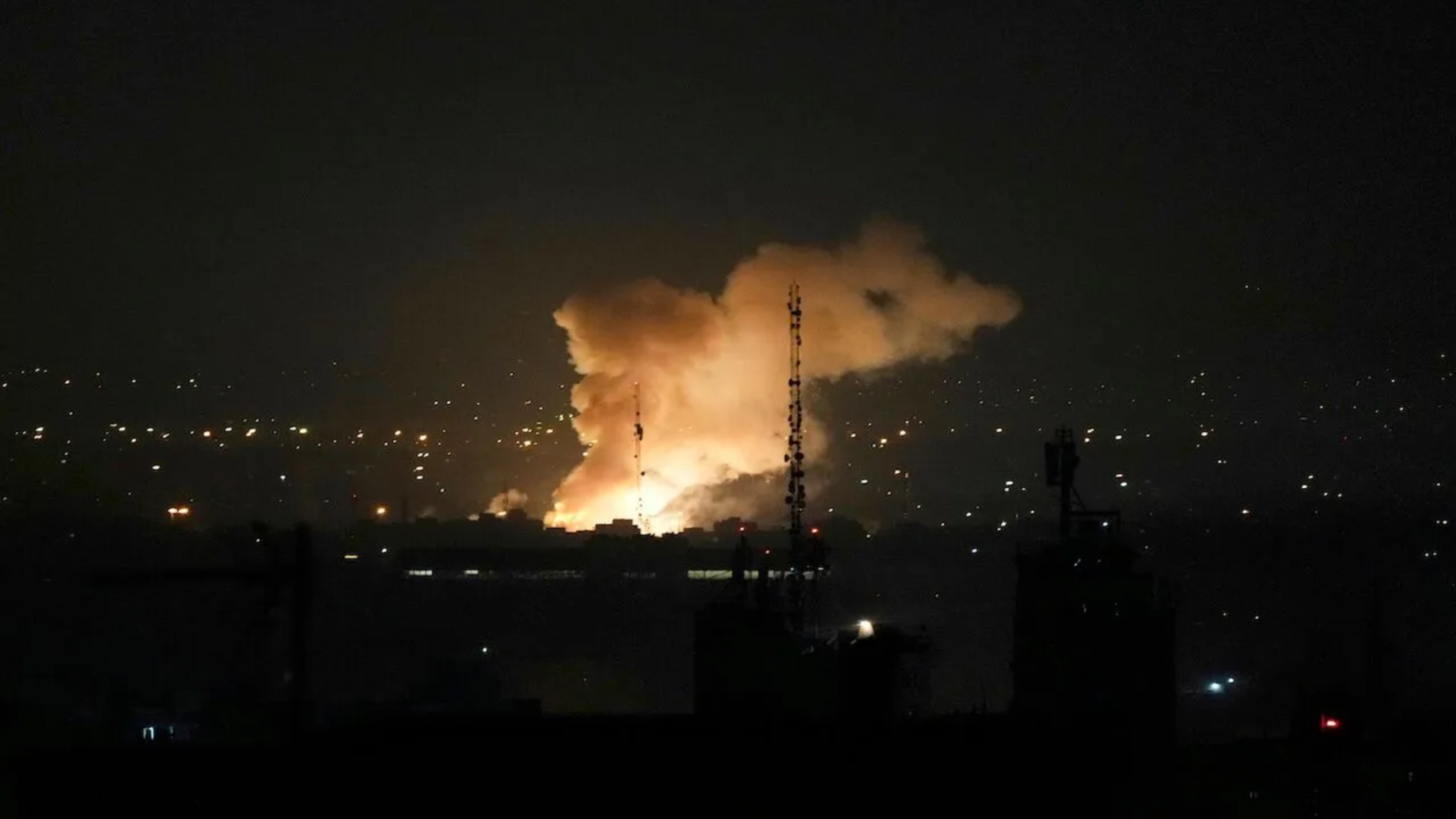Why Israel Targets Iran’s Nuclear Program
Israel targets Iran’s nuclear program once again, intensifying their decades-long rivalry with a bold military strike. The tense relationship between Israel and Iran is rooted in political, religious, and strategic divisions. Since Iran’s Islamic Revolution in 1979, the country has positioned itself as one of Israel’s most vocal adversaries, routinely denouncing its legitimacy and supporting militant groups like Hezbollah and Hamas.

One major flashpoint in their ongoing conflict is Iran’s nuclear program. While Tehran claims its efforts are for peaceful energy production, Israel and many Western powers suspect ambitions to develop nuclear weapons. For Israel, a nuclear-capable Iran is an existential threat — and Israeli leaders have long vowed to prevent that outcome, even through preemptive military action.
Inside the Attack: How Israel Targets Iran’s Nuclear Sites and Military Leaders
According to credible intelligence reports, Israeli forces executed a coordinated attack on Iranian nuclear enrichment facilities. These included high-profile sites near Natanz and Fordow. These locations are critical for uranium enrichment, which is a key process in potential weapons development.
Moreover, Israeli missiles reportedly struck Iranian military commanders. These leaders are said to be instrumental in shaping Iran’s regional strategy. The operation made use of advanced drone systems and precision-guided munitions. As a result, the goal was to limit civilian casualties and avoid triggering wider conflict.
This is not the first time Israel targets Iran’s nuclear infrastructure, but the scope and precision of this strike mark a significant escalation.
Strategic Motives: Why Israel Struck Iran’s Nuclear and Military Assets
Israel had several objectives behind this high-risk strike:

1. Delay Nuclear Progress:
By damaging equipment and infrastructure, Israel aims to slow Iran’s nuclear timeline. This is a direct attempt to buy time for diplomatic or strategic alternatives.
2. Deter Further Development:
The strike sends a clear message to Tehran and other regional powers. Israel is willing to act decisively against any perceived nuclear threat.
3. Disrupt Command Structure:
Targeting top military personnel weakens Iran’s ability to coordinate responses. This move also disrupts Iran’s influence over proxy forces in the region.
4. Shape Global Diplomacy:
By taking action, Israel places pressure on the international community. The hope is to push key players toward enforcing stricter terms in nuclear negotiations.
Global Response: World Reacts as Israel Targets Iran’s Nuclear Ambitions
The attack has triggered a global wave of diplomatic reactions. Here’s how the world is responding:
United States:
U.S. officials acknowledged Israel’s right to self-defense. However, they also urged restraint to avoid further regional instability. Washington continues to support diplomatic engagement with Iran.
European Union:
The EU expressed deep concern about the escalation. In response, EU leaders have called for a renewed push to revive the 2015 Joint Comprehensive Plan of Action (JCPOA).
Russia and China:
Both countries condemned the strike. They view it as a violation of international law and a step backward for diplomacy. Moreover, they emphasized that dialogue—not military action—is the only sustainable path.
Middle Eastern Nations:
Responses across the region have been mixed. Gulf countries such as Saudi Arabia and the UAE, while not openly supportive, appear to tacitly endorse efforts to check Iran’s power. Conversely, nations like Iraq and Syria fear broader conflict as a result of the strike.
Iran’s Next Move: Retaliation After Israel’s Nuclear Strike
Iran’s leadership quickly denounced the attack. Officials described it as an act of war and pledged retaliation. There are several possible forms this could take:

1. Direct Military Action:
Iran may attempt strikes on Israeli targets. However, such moves risk drawing in global powers and escalating into full-scale war.
2. Proxy Attacks:
Tehran could direct its regional proxies—such as Hezbollah or the Houthis—to carry out retaliatory attacks. This option allows Iran to strike back indirectly.
3. Cyber Warfare:
Iran is capable of executing sophisticated cyber attacks. In fact, previous incidents have already demonstrated its capability to disrupt Israeli infrastructure.
4. Diplomatic Maneuvers:
Iran might limit international inspections or ramp up uranium enrichment. These steps would undermine remaining diplomatic agreements and raise global alarm.
Consequences for Middle East Stability and Global Security
The ripple effects of this strike are already being felt throughout the region. Here’s what’s at stake:

Escalation Risks:
If Iran retaliates directly, it could trigger a broader war. Such a conflict might involve the U.S., Gulf countries, and NATO allies.
Oil Market Volatility:
The Middle East remains a key supplier of global energy. Any regional instability threatens oil supplies and could cause spikes in prices.
Nuclear Arms Race:
Other regional powers may now consider accelerating their own nuclear programs. This would raise the risk of nuclear proliferation in an already fragile region.
The Future of the Iran Nuclear Deal
The JCPOA was once seen as a major diplomatic victory. It provided a structured way to monitor and limit Iran’s nuclear activity. However, the U.S. withdrawal from the deal in 2018, followed by renewed sanctions, weakened the agreement.
Now, Israel’s military strike complicates things further. Trust is eroding fast. Here are the core questions:
- Will Iran continue uranium enrichment beyond previous limits?
- Can the deal be revived under current tensions?
- How will global powers respond to the shifting military and diplomatic landscape?
The answers remain unclear. However, it’s evident that future negotiations will be more difficult.
Will There Be More Strikes or a Path to Peace?
In the wake of this attack, speculation is rife. Many analysts wonder whether Israel is preparing for further action. Likewise, Iran’s next moves are being closely monitored.
To prevent a full-blown conflict, international players must intervene swiftly. Talks must resume, even under tense conditions. Without diplomacy, the region could plunge into deeper chaos.
A Critical Turning Point in Israel-Iran Relations
Israel’s targeting of Iran’s nuclear facilities and military leadership marks a defining chapter in their ongoing conflict. While it may delay Iran’s nuclear capabilities, it could also trigger unpredictable consequences. The global community faces a stark choice—either push harder for peace or prepare for escalating violence.
For the sake of regional stability and global peace, it is essential that all sides commit to de-escalation. Dialogue, not war, must prevail.
As Israel targets Iran’s nuclear capabilities and top military figures, the region faces a defining moment that could reshape its geopolitical future.




